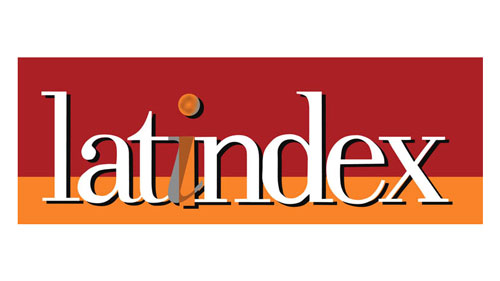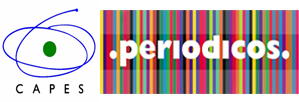Games, digital technologies and inclusion in the English language curriculum: a teacher’s stories
DOI:
https://doi.org/10.26512/rhla.v21i1.42244Keywords:
Teaching and learning English. Narrative Inquiry. Applied Linguistics., Teaching and learning English, narrative inquiry, Games, digital tecnologies, inclusionAbstract
In this article, I tell experiences and discuss some meanings related to the themes: games, digital technologies and inclusion, in order to problematize my teaching practice within the scope of Applied Linguistics. My aim to narratively understand my experience with an inclusive proposal in the English language teaching and learning curriculum. Based on the experience narrated in the story “À la cabra-cega”, an activity on digital technologies proposed by the textbook and adapted by me to include my visually-impaired research participant, I used conversation as a methodological procedure and reflected on the inclusion process in my teaching practice and on the role of games and assistive digital technologies in this inclusion process. Broadening my view towards curriculum issues, I socialize the experience of learning, from the perspective of the participant, that the inclusion process involves offering similar conditions for participation. I question the importance of thinking about methodological proposals that accommodate personal and professional practical knowledge to rethink inclusive practices I can adopt for teaching and learning the English language.
Downloads
References
ALMEIDA, J. M. A leitura do mundo por meio dos sentidos: histórias de ensino, aprendizagem e deficiência visual. 2009. 204 f. Dissertação (Mestrado em Linguística) – Programa de Pós-graduação em Linguística, Universidade Federal de Uberlândia, Uberlândia, 2008.
ANDRADE, M; R. Jogos digitais, tecnologias móveis e aprendizagem de línguas: uma avaliação de elementos de jogos em dispositivos móveis. 2019. 363 f. Tese (Doutorado em Estudos de Linguagens) – Programa de Pós-graduação em Estudos de Linguagens, Centro Federal de Educação Tecnológica de Minas Gerais, Belo Horizonte, 2019.
BRASIL. Lei Federal no 13.146, de 06 de julho de 2015. Institui a Lei Brasileira de Inclusão da Pessoa com Deficiência (Estatuto da Pessoa com Deficiência). Diário Oficial da União, Brasília-DF, p. 2, 07 jul. 2015. Disponível em: http://www.planalto.gov.br/ccivil_03/_ato2015-2018/2015/lei/l13146.htm. Acesso em: 21 jun. 2022.
CLANDININ, D. J. Engaging in narrative inquiry. New York: Routledge, 2013.
CLANDININ, D. J. Journeys in narrative inquiry: the selected works of D. Jean Clandinin. Oxon, UK; New York: Routledge, 2020.
CLANDININ, D. J.; CONNELLY, M. Narrative inquiry. Complementary methods for research in education. 1st edition. Washington, DC: American Educational Research Associates, 2000.
CLANDININ, D. J.; CONNELLY, M. Pesquisa Narrativa: experiência e história em pesquisa qualitativa. 2. ed. rev. tradução: GPNEP: Grupo de Pesquisa Narrativa e Educação de Professores. ILEEL/UFU. Uberlândia, MG: EDUFU, 2015.
CONNELLY, F. M.; CLANDININ, D. J. Teachers as curriculum planners: narratives of experience. USA/Canada: Teachers College Press/The Ontario Institute for Studies in Education, 1988.
CONNELLY, F. M.; CLANDININ, D. J. Personal and professional knowledge landscapes: a matrix of relations. In: CLANDININ, D. J.; CONNELLY, M. Teachers’ professional knowledge landscapes. New York/London: Teachers College Press/Columbia University, 1995. p. 25-35.
DEWEY, J. (1938). Experience and Education. New York: Kappa Delta Pi,1997.
ELY, M. et al. (1997). On writing qualitative research: living by words. London; Philadelphia, PA: Routledge Falmer, 2001.
FELIX, A. A tolerância como elemento essencial para o professor atua na escola inclusiva. In: ALVAREZ, M. L. O.; SILVA, K. A. (Org.) Linguística Aplicada: múltiplos olhares. Campinas, SP: Pontes Editores, 2007. p. 19-26.
FIDALGO, S. S. Formação de professores na dicotomia (ex)inclusão social-escolar: trabalhos na Linguística Aplicada. In: MELLO, D.; FELICE, M. I. V. (Org.). Ensino de línguas no curso de Letras: práticas, experiências e currículo. Uberlândia, MG: EDUFU, 2019. p. 177-189.
FLOYD, D.; PORTNOW, J. Tangential learning: how games can teach us while we play. Extra Credits, 2008. Disponível em: https://www.youtube.com/watch?v=rlQrTHrwyxQ. Acesso em: 14 abr. 2020.
GOMES JUNIOR, R. C. (Org.). Pesquisa Narrativa: histórias sobre ensinar e aprender línguas. São Paulo: Pimenta Cultural, 2020.
HOLLINGSWORTH, S.; DYBDAHL, M. Talking to learn: the critical role of conversation in narrative inquiry. In: CLANDININ, D. J. (Ed.). Handbook of narrative inquiry: mapping a methodology. Thousand Oaks, CA; London; New Delhi: Sage/University of Alberta, 2007. p. 146-176.
KUBOTA, H. et al. Understanding social inclusion: a narrative inquiry into the experiences of refugee families with young children. International Journal of Early Years Education, p. 1-15, 2021.
LUGONES, M. Playfulness, “world” – travelling”, and loving perception. Hypatia: a journal of feminist philosophy, v. 2, n. 2, p. 3-19, Summer 1987.
MCCARTHY, M.; MCCARTHY, J.; SANDFORD, H. Touchstone 3: Student’s Book. 2nd ed. New York: Cambridge University Press, 2014.
MCLUHAN, M. Understanding media: the extensions of men. New York: McGraw Hill, 1964.
MELLO, D. M. Pesquisa Narrativa e formação de professores. In: GOMES JUNIOR, R. C. (Org.). Pesquisa Narrativa: histórias sobre ensinar e aprender línguas. São Paulo: Pimenta Cultural, 2020. p. 38-61.
MELLO, D.; SOUZA, V.; BENGEZEN, V. C. Preparation of teachers of EAL in Brazil: research, policy, curriculum and practice. In: POLAT, N.; MAHALINGAPPAL, L.; KAYI-AYDAR, H. The preparation of Teachers of English as an additional language around the world: research, policy, curriculum and practice. Bristol; Blue Ridge Summit, PA: Multilingual Matters, 2021. p. 31-52.
MOITA LOPES, L. P. (Org.). Por uma Linguística Aplicada Indisciplinar. São Paulo: Parábola Editorial, 2006.
OLIVEIRA, N. M. Histórias de atendimento a alunos com necessidades educacionais individuais. 2016. 152 f. Dissertação (Mestrado em Linguística) -Programa de Pós-graduação em Linguística, Universidade Federal de Uberlândia, Uberlândia, 2016.
SOUZA, V. V. S. Jogo limpo na construção do currículo de aprendizagem de inglês? PERSPECTIVA – Revista do Centro de Ciências da Educação, Florianópolis (on-line), v. 38, n. 2, p. 1-22, 2020.
SZUNDY, P. T. C.; FABRÍCIO, B. F. Linguística Aplicada e indisciplinaridade no Brasil: promovendo diálogos, dissipando brumas e projetando desafios epistemológicos. In: SZUNDY, P. T. C.; TILIO, R.; MELO, G. C. V. (Org.). Inovações e desafios epistemológicos em Linguística Aplicada: perspectivas sul-americanas. Campinas, SP: Pontes Editores/ALAB, 2019. p. 63-90.
SZUNDY, P. T. C.; GUIMARÃES, T. (Ed.). Apresentação 30 anos da ALAB: desafios, rupturas e possibilidades de pesquisa em Linguística Aplicada. Raído, Dourados, MS, v. 14, n. 36, p. 9-15, 2020.
WENGER, E. Communities of practice: learning, meaning and identity. New York: Cambridge University Press, 1998.
Downloads
Published
How to Cite
Issue
Section
License
Copyright (c) 2022 Revista Horizontes de Linguistica Aplicada

This work is licensed under a Creative Commons Attribution-NonCommercial-NoDerivatives 4.0 International License.

A Revista Horizontes de Linguística Aplicada de http://seer.bce.unb.br/index.php/horizontesla/index é licenciado sob uma Licença Creative Commons Atribuição-Uso não-comercial-Vedada a criação de obras derivadas 3.0 Unported.
- Autores mantém os direitos autorais e concedem à revista o direito de primeira publicação, sendo o trabalho simultaneamente licenciado sob a Creative Commons Attribution License o que permite o compartilhamento do trabalho com reconhecimento da autoria do trabalho e publicação inicial nesta revista.
- Autores têm autorização para assumir contratos adicionais separadamente, para distribuição não-exclusiva da versão do trabalho publicada nesta revista (ex.: publicar em repositório institucional ou como capítulo de livro), com reconhecimento de autoria e publicação inicial nesta revista.




